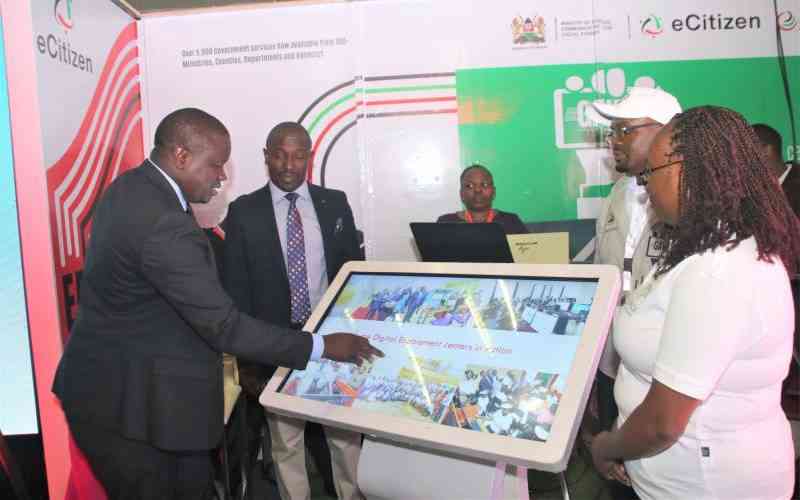×
The Standard e-Paper
Kenya’s Boldest Voice

ICT Authority CEO Stanley Kamanguya, Board Chairman Slyvanus Maritim, Konza Metropolis Business Development and Innovation Chief Manager Josephine Ndambuki and Konza Metropolis Acting CEO John Paul Okwiri during the launch of e-Citizen Services at KICC in Nairobi. [David Gichuru, Standard]
The government and a private company alleged to be running the eCitizen platform are at risk of being forced to refund Kenyans billions of shillings collected over the years as "convenience" fees.